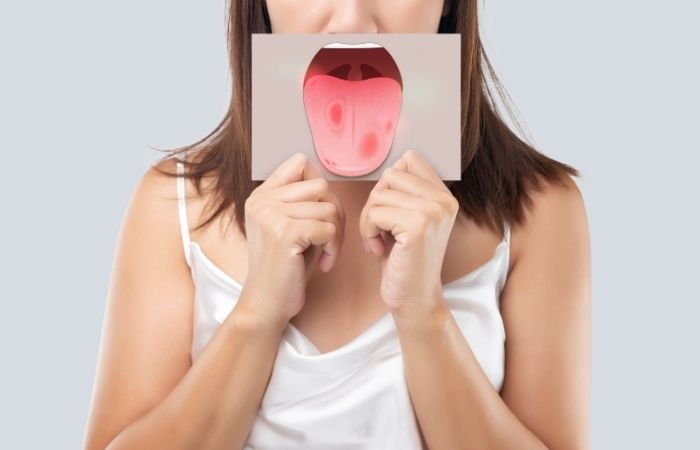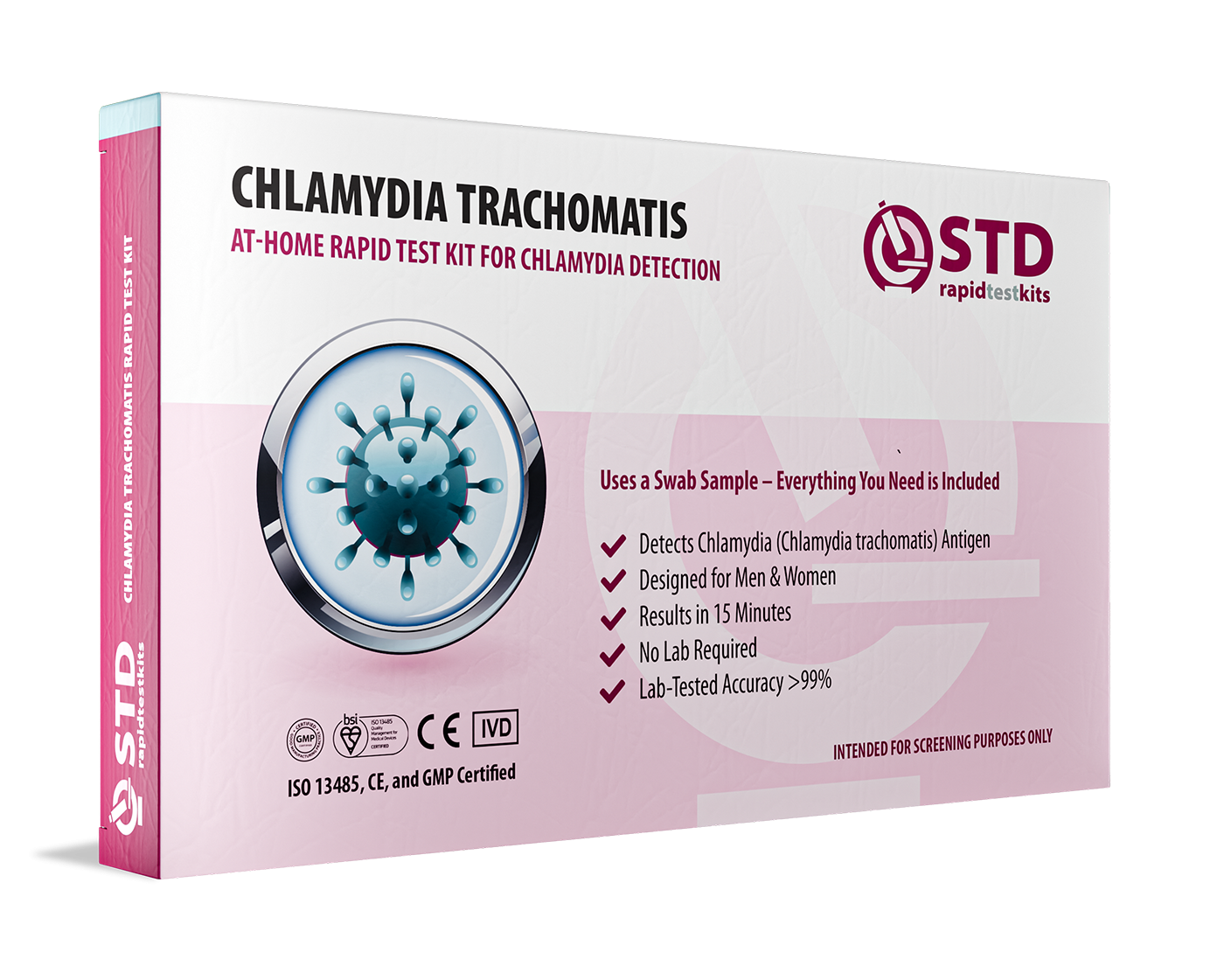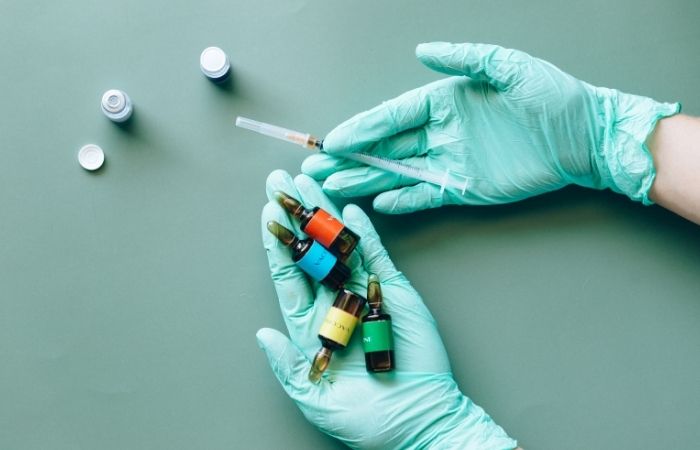Think Oral Sex Is Safe? These 6 STDs Say Otherwise
Quick Answer
Yes, you can get chlamydia in your mouth from giving oral sex to someone who has the infection. Oral chlamydia often has no symptoms but can cause a sore throat, swollen glands, or white patches near the tonsils.
What Is Oral Chlamydia?
Oral chlamydia is an infection of the pharynx (your throat) caused by the same bacteria, Chlamydia trachomatis, that infects genitals, urethras, and rectums. When chlamydia enters the mouth, usually through unprotected oral sex, it can colonize the back of your throat. And here’s the tricky part: it rarely causes big, obvious symptoms.
That’s why experts call it a “silent” infection. You can carry it for weeks, or longer, without knowing. In that time, you can unknowingly pass it on to a partner through oral or even kissing if there are open sores or gum inflammation.
Oral chlamydia is just as infectious and just as treatable as genital chlamydia, but it often flies under the radar because people don’t think of their mouths as an STD risk zone.

People are also looking for...What does a throat STD feel like?
Symptoms of Oral Chlamydia (When There Are Any)
Here’s where it gets frustrating: most people with oral chlamydia have no symptoms at all. But when symptoms do appear, they often mimic things like strep throat or a mild viral infection.
You might notice:
- Persistent sore throat (especially at the back of the mouth)
- Swollen lymph nodes in the neck
- Mild fever or general malaise
- White or grayish patches near the tonsils
- Dry, scratchy throat that doesn’t respond to typical cold remedies
- Bad breath, especially if tonsils are involved
You won't get genital symptoms from oral chlamydia, unless you’re infected in both areas. And many clinics don’t test the throat unless you specifically ask for it, which means even if you test negative on a genital swab, you could still be carrying the infection elsewhere.
How Oral Chlamydia Is Transmitted
Oral chlamydia spreads through oral-genital contact, that means giving oral sex to someone with chlamydia in their genitals. It’s less common (but still possible) to get it from receiving oral sex if the person giving it has oral chlamydia themselves. The bacteria doesn’t survive well on surfaces, so kissing or sharing utensils isn't a major risk unless there are open wounds or blood involved.
Risk increases if:
- You’ve had multiple partners without protection
- You give oral sex without using condoms or dental dams
- You or your partner(s) haven’t been tested recently
- You assume “it was just oral” means “it was safe”
If you’re in a situation where oral sex is part of your regular intimacy, and let’s face it, that’s most sexually active adults, you should be thinking about oral STI screening, especially for chlamydia and gonorrhea.
Check Your STD Status in Minutes
Test at Home with RemediumChlamydia Test Kit

 For Men & Women
For Men & Women Results in Minutes
Results in Minutes No Lab Needed
No Lab Needed Private & Discreet
Private & DiscreetOrder Now $33.99 $49.00
Testing for Oral Chlamydia
Here’s the blunt truth: most people don’t get tested in their throats unless they specifically ask. Even at clinics, unless you’re crystal clear about giving or receiving oral sex, you might only be tested genitally. That’s why oral chlamydia slips through the cracks.
The gold standard for testing is a nucleic acid amplification test (NAAT), which can detect the genetic material of Chlamydia trachomatis from a throat swab. It’s fast, accurate, and widely used, but again, only if your provider knows where to swab.
If you’re testing at home, make sure your kit allows for oral or multi-site sampling. Many modern tests, like the Chlamydia + Gonorrhea Home Test, focus on urogenital infection, but throat and rectal options are becoming more available, especially for people at higher risk or with specific exposure histories.
If you had unprotected oral sex and now have a sore throat, or even no symptoms but just that “something’s not right” feeling, get tested. Don’t let shame or assumptions delay treatment.
Treatment: It’s Easier Than You Think
The upside? Chlamydia, oral or otherwise, is almost always curable with a short course of antibiotics. The CDC currently recommends a 7-day regimen of doxycycline, though azithromycin may still be used in some settings.
Here’s what matters:
- Take all doses, even if you feel better early
- Avoid oral or genital sex for 7 days after starting meds
- Make sure your partner(s) are treated too, or you risk ping-ponging the infection back and forth
Reinfection is common, especially when both partners aren’t treated at the same time. So even if you clear it once, staying tested and honest with your partners is part of long-term prevention.

People are also looking for...What’s the most effective antibiotic for chlamydia?
The Stigma of “Just Oral” and Why It Matters
In the clinic, oral sex is often treated like the “safe” or “less risky” alternative to penetrative sex. And while it's lower risk for some STDs, it's far from risk-free.
Here’s the deeper issue: because many people don’t feel like they’re having “real sex” when giving or receiving oral, they skip condoms or testing. That creates a blind spot. Not just physically, but emotionally. It’s easier to convince yourself nothing happened. That you’re fine. That no STD could possibly show up from something so casual.
But chlamydia doesn’t care about your definitions. It just needs a mucus membrane and a moment.
Real talk? A ton of people carry chlamydia without knowing it. You could pick it up from someone who “looks clean,” from a partner who tested recently but didn’t check their throat, or from a hookup you forgot to ask about testing at all. And if you get throat symptoms a week or two later, your doctor might call it strep or a virus, unless you say the words: “I gave someone oral sex recently.”
You’re not dirty. You’re not reckless. You’re human. And human behavior, when combined with silence and shame, is how infections thrive.
FAQs
1. Can you really get chlamydia from oral sex?
Yes. Giving oral sex to someone with genital chlamydia can transmit the infection to your throat.
2. What does oral chlamydia feel like?
Often it feels like nothing. But sometimes it mimics strep: sore throat, swollen glands, or white spots near your tonsils.
3. Can you get chlamydia in your throat from kissing?
Very unlikely. Chlamydia doesn’t live well in saliva alone, though kissing with open wounds or oral lesions may increase risk slightly.
4. How long does oral chlamydia take to show up?
Anywhere from a few days to a few weeks, but many people stay asymptomatic.
5. Will a regular STD test catch oral chlamydia?
Only if you request a throat swab. Most routine tests focus on urine or genital swabs.
6. Is oral chlamydia dangerous?
It’s not usually life-threatening, but left untreated, it can spread to other areas or be passed to partners unknowingly.
7. Does mouthwash kill oral chlamydia?
No. Mouthwash can reduce bacterial load but won’t eliminate an STI like chlamydia.
8. Can you cure oral chlamydia?
Yes. Oral chlamydia is fully treatable with antibiotics, usually doxycycline.
9. Should I tell my partner?
Yes. They may need testing or treatment, even if they feel fine. It's about protecting both of you.
10. How often should I test if I have oral sex regularly?
Every 3–6 months is a good rule of thumb, especially with new or multiple partners.
Oral Chlamydia on the Rise: Global Trends and Clinical Voices
Globally, the conversation around extragenital STDs, those found in the throat or rectum, is gaining urgency. Studies in the UK, Australia, the U.S., and Southeast Asia have all noted that oral chlamydia is underdiagnosed and underreported. Why? Because standard screenings often ignore the mouth, especially if patients don’t mention oral sex explicitly.
A major study from the British Medical Journal (BMJ) found that among patients who tested positive for chlamydia at any site, up to 25% had the infection in the throat, with no symptoms and no idea they were infected. Similar findings emerged in Sydney, where oral chlamydia was especially common among gay and bisexual men, but also showed up in cisgender women who had recent new partners.
What’s most revealing isn’t the bacteria, it’s the cultural silence.
“People don’t associate sore throats with sex,” says Dr. Mitali Sandhu, a sexual health physician in Toronto. “But the reality is, oral chlamydia is now as much a part of my clinical practice as genital infections. We just need to start treating it that way.”
Check Your STD Status in Minutes
Test at Home with Remedium7-in-1 STD Test Kit

 For Men & Women
For Men & Women Results in Minutes
Results in Minutes No Lab Needed
No Lab Needed Private & Discreet
Private & DiscreetOrder Now $129.00 $343.00
For all 7 tests
If It Goes in Your Mouth, It Can End Up in Your Throat
Oral chlamydia isn’t rare. It’s not a freak occurrence. And it’s not something only “high-risk” people get. It’s a common, treatable infection that thrives in silence, and that silence ends with education, access, and honesty.
You don’t have to panic. You don’t have to confess your sex life to a stranger at a clinic. You just have to take the next step and test, for your sake, and for anyone else you might kiss or go down on.










